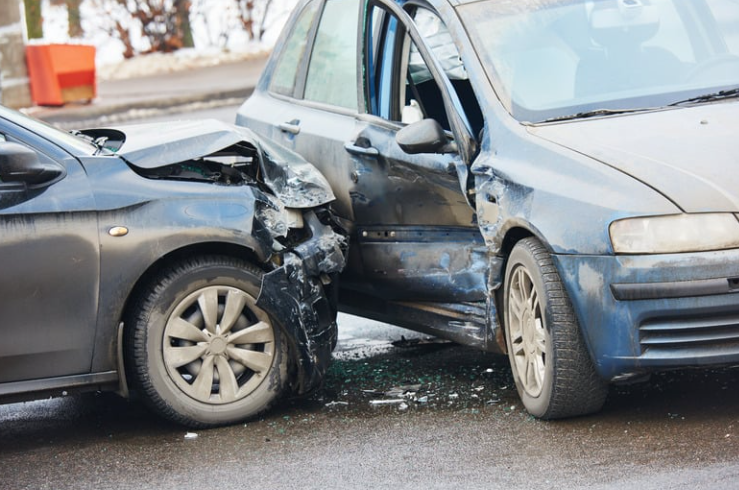Understanding the Law on Car Accidents

What Are Car Accident Laws?
- Car accident laws govern the rights and responsibilities of drivers, passengers, and other road users involved in vehicular collisions.
- These laws outline the procedures for determining liability, filing insurance claims, and pursuing compensation for damages or injuries.
- Understanding these laws helps ensure that victims of car accidents receive fair treatment and adequate compensation.
- Learn more about traffic laws and safety regulations from the National Highway Traffic Safety Administration (NHTSA).
Key Legal Responsibilities After a Car Accident
- Stopping at the Scene: Drivers involved in an accident are required by law to stop and exchange information, regardless of fault.
- Providing Assistance: Drivers must assist injured individuals and call emergency services if necessary.
- Reporting the Accident: In many states, accidents resulting in injury, death, or significant property damage must be reported to law enforcement.
- Exchanging Information: Drivers should exchange names, contact details, insurance information, and vehicle registration numbers.
Determining Liability in Car Accidents
- Liability in car accidents is often based on negligence, meaning the at-fault driver failed to exercise reasonable care.
- Common examples of negligent behavior include speeding, distracted driving, and failing to yield.
- Comparative fault laws in some states allow parties to share liability, reducing compensation based on the percentage of fault.
- For details on negligence laws, visit the Legal Information Institute.
Types of Compensation Available
- Economic Damages: These include medical bills, vehicle repair costs, lost wages, and other tangible losses.
- Non-Economic Damages: Compensation for pain and suffering, emotional distress, or loss of quality of life.
- Punitive Damages: In cases of gross negligence or intentional misconduct, courts may award punitive damages to deter similar behavior.
Insurance Requirements and Coverage
- Most states require drivers to carry liability insurance, which covers damages and injuries caused to others.
- Some states operate under a “no-fault” insurance system, where drivers turn to their own insurance for coverage regardless of fault.
- Additional coverage options, such as uninsured motorist protection or collision insurance, provide extra financial security.
Steps to Take After a Car Accident
- Ensure Safety: Move to a safe location if possible and check for injuries.
- Call Emergency Services: Report the accident to law enforcement and request medical assistance if needed.
- Document the Scene: Take photos, gather witness information, and note important details like weather conditions and road signs.
- Notify Your Insurance Company: Inform your insurer about the accident as soon as possible to initiate the claims process.
Common Legal Issues in Car Accident Cases
- Disputes Over Fault: Insurance companies and drivers may argue over who is responsible for the accident.
- Uninsured Drivers: Collisions involving uninsured or underinsured drivers complicate the compensation process.
- Delayed Symptoms: Injuries that manifest after the accident can make it challenging to prove a direct link to the collision.
- Low Settlement Offers: Insurers may offer settlements that do not fully cover the victim’s damages or injuries.
Statute of Limitations for Car Accident Claims
- The statute of limitations sets a deadline for filing car accident lawsuits, which varies by state.
- Most states require claims to be filed within two to three years from the date of the accident.
- Exceptions may apply in cases involving minors or government vehicles.
- For state-specific timelines, visit the National Conference of State Legislatures (NCSL).
How Car Accident Lawyers Help Victims
- Case Evaluation: Lawyers assess the circumstances of the accident and determine the best legal strategy.
- Negotiation with Insurers: They handle communications with insurance companies to secure fair settlements.
- Litigation: If negotiations fail, attorneys represent clients in court to pursue maximum compensation.
- Expert Witness Collaboration: They work with accident reconstruction specialists and medical experts to strengthen cases.
Preventing Car Accidents
- Follow Traffic Laws: Obey speed limits, traffic signals, and road signs.
- Avoid Distractions: Stay focused on the road and avoid using mobile devices while driving.
- Practice Defensive Driving: Anticipate the actions of other drivers and maintain a safe following distance.
- Maintain Your Vehicle: Regularly inspect brakes, tires, and other critical systems to ensure roadworthiness.
How Lawyers Corner Can Help
At Lawyers Corner, we are dedicated to helping victims of car accidents navigate the complexities of personal injury law. Whether you need assistance with insurance claims, proving liability, or securing compensation, our experienced legal team is here to support you every step of the way.
For more information or to connect with a qualified attorney, visit Lawyers Corner Contact Us. Let us help you protect your rights and achieve the justice you deserve.

Related Items:





